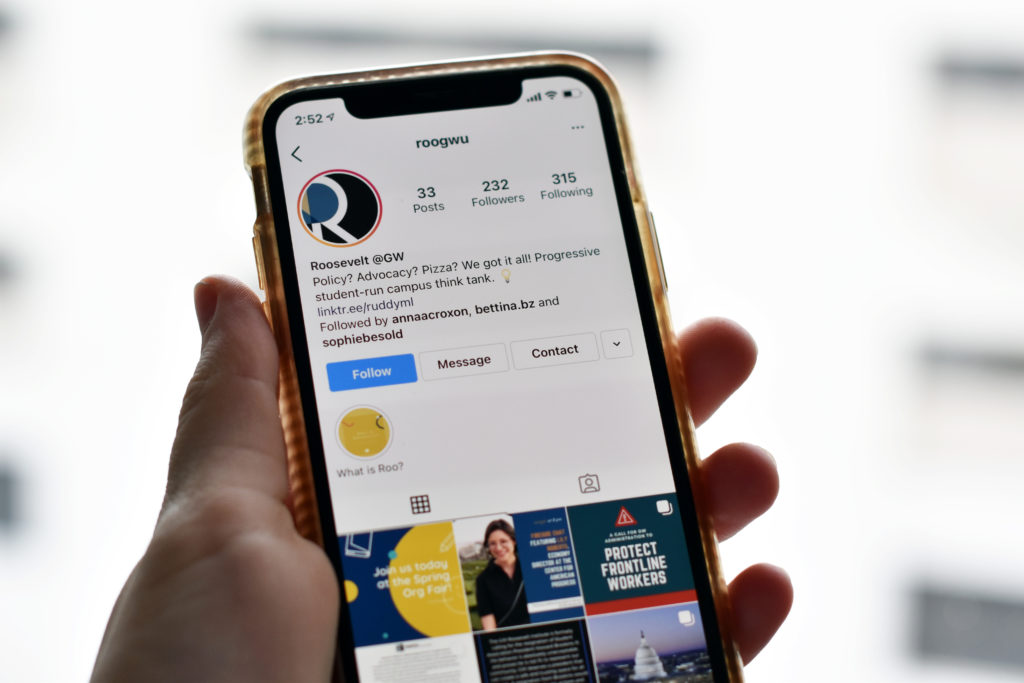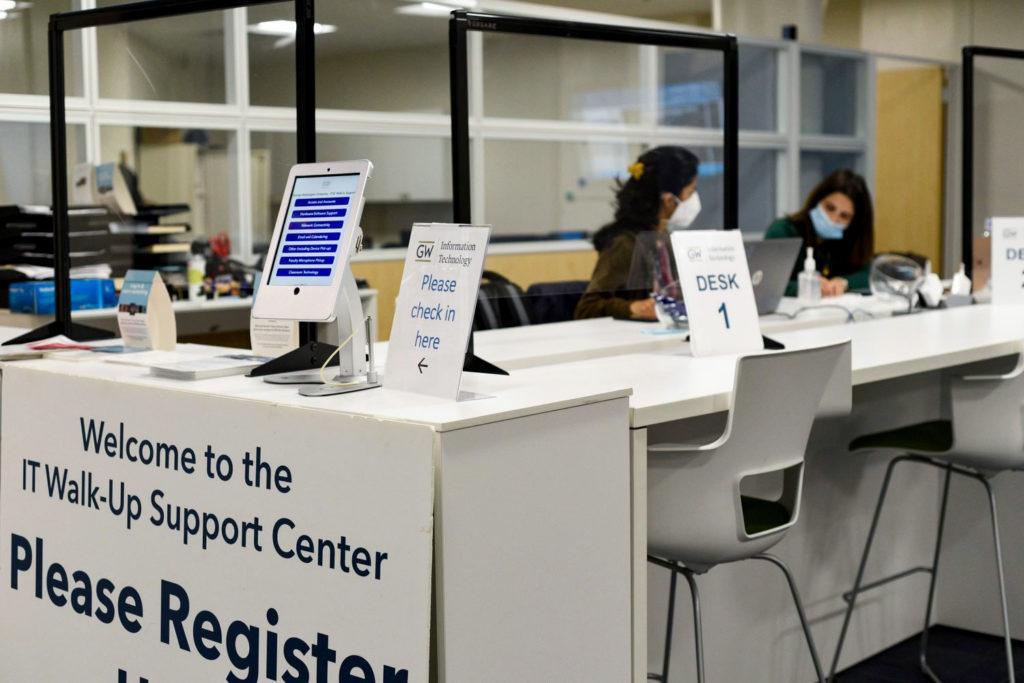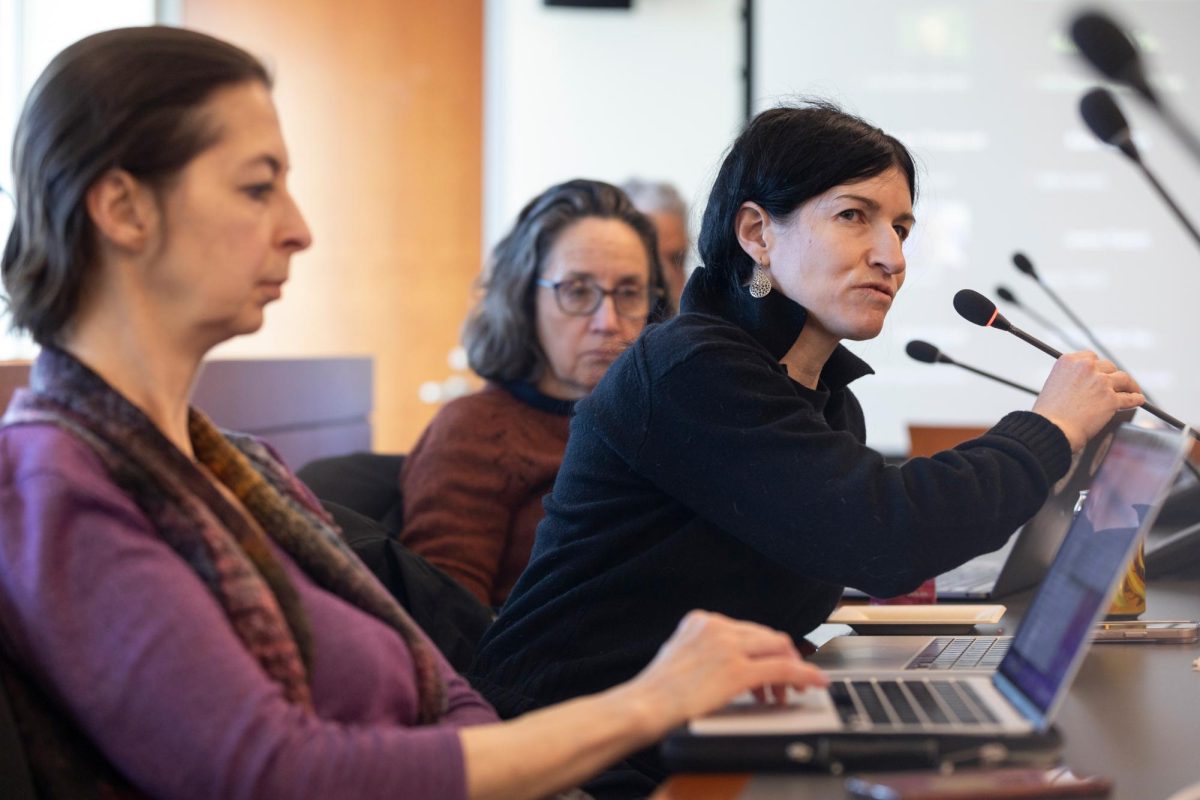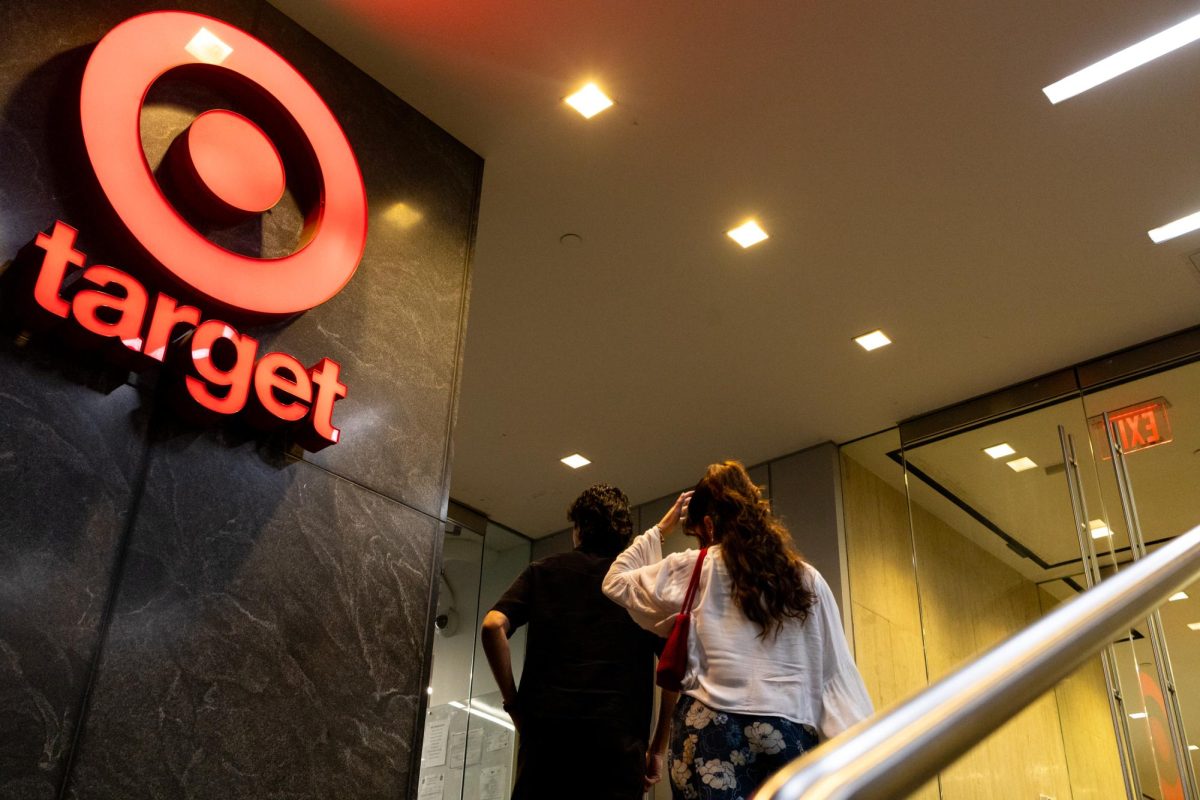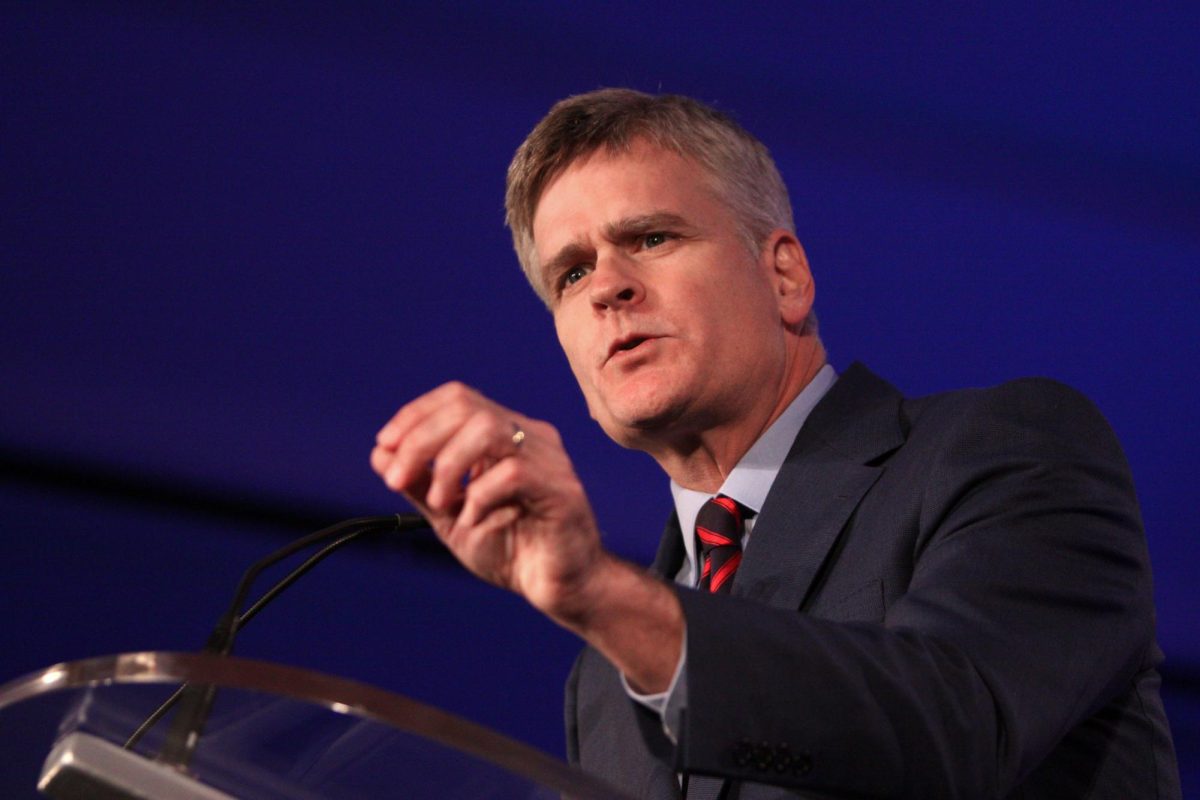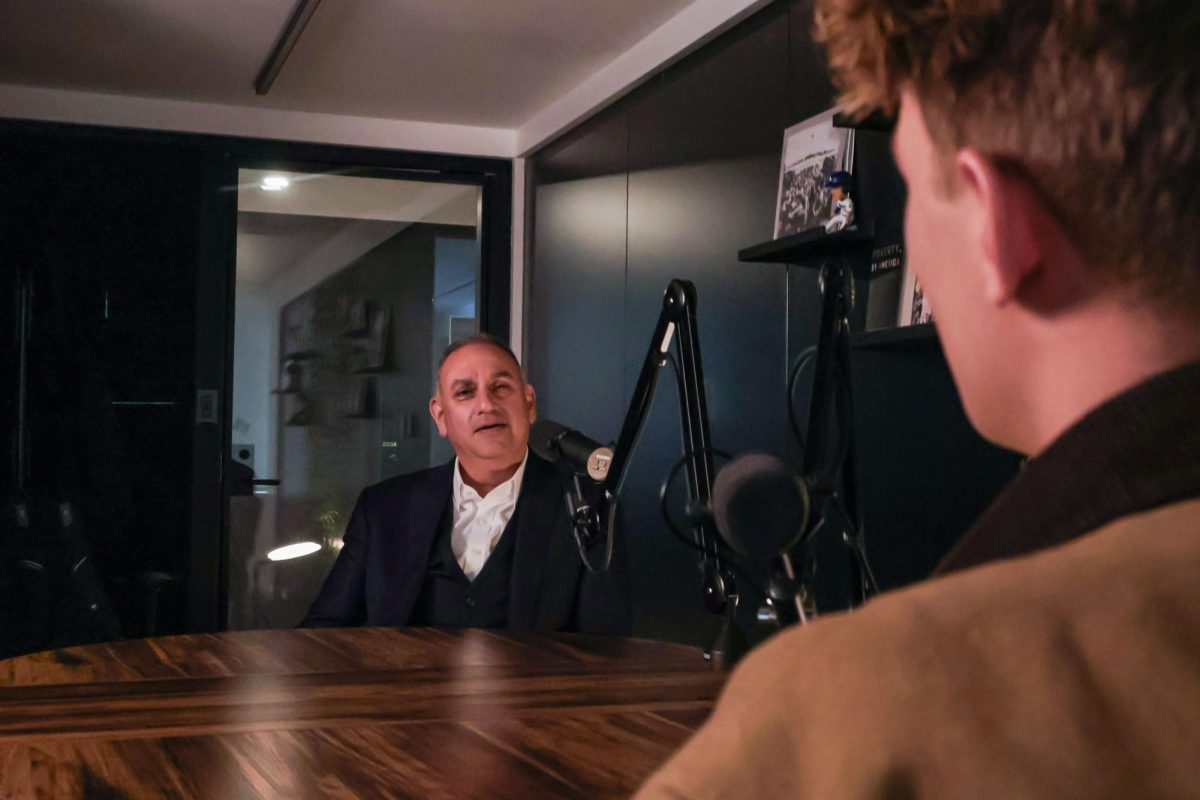A progressive, student-run think tank launched a campaign last week calling on officials to implement stronger COVID-19 relief for essential workers on campus.
GW’s chapter of the Roosevelt Network published a petition last Monday outlining four requests to administrators, like expanding paid pandemic leave and communicating more with third-party contractors about employee needs. Student organizers said they hope their advocacy efforts will influence officials to allow longer paid leave and enforce stricter COVID-19 protections.
As of Sunday evening, the petition has received more than 150 signatures. Student leaders said they also sent a letter with their demands to administrators last Monday.
University spokesperson Crystal Nosal said Chief People Officer Dana Bradley and Vice President for Safety and Facilities Scott Burnotes responded to the Roosevelt letter on behalf of University President Thomas LeBlanc and other officials. She said their priority is the safety of the community on campus, which she said will continue to “drive every action we take.”
“We are especially grateful for the contributions of our frontline staff, including our facilities, safety and health care teams, for supporting the safety of our campuses and our community during the pandemic,” Nosal said in an email.
She said the University hosts regular forums and team meetings with on-campus staff to address safety and health concerns. She added that many of GW’s frontline staff, including those employed by third-party contractors, are represented by unions who bargain exclusively for them with respect to working conditions.
She declined to say whether the University will implement any of Roosevelt’s demands.
“We have a very good relationship with these unions and work with them to address any concerns that are raised,” Nosal said. “We encourage any individuals with concerns to speak with their union representative, if applicable, their manager, or to report anonymously through EthicsPoint.”
The letter, which was co-signed by 15 other student organizations like the Progressive Student Union and Persist GW, demands that GW increase its paid pandemic leave from 80 hours to 180 and create whistleblower protections for reporting safety violations. The letter also asks the University to hold third-party contractors accountable to enforcing standard safety precautions.
“When we met with the administration, they claimed that they have limited control over the safety protocols implemented by companies with whom they contract labor,” the letter states. “This is blatantly false. The administration has not only the ability but the duty to demand that third-party contractors put in place safety protocols consistent for all GW workers.”
Senior Sean Ruddy, the president of the Roosevelt Network, said the campaign has also encouraged students to personally email LeBlanc and Facilities, Planning, Construction and Management in support of the campaign.
Ruddy said members brainstormed their campaign last fall after speaking in person and virtually with GW’s employees, during which they heard about issues like receiving 80 hours of paid leave if they contracted COVID-19 from campus. Ruddy said he and other members of Roosevelt then began collaborating on ways to help GW’s essential workers.
“We think it’s really important that our university takes the time to sufficiently protect workers and give them the resources,” Ruddy said. “We care deeply about how the workers on campus are treated.”
Ruddy said he spoke with an official from human resources in mid October but felt “dismissed” at the meeting.
He said the members of the HR department he spoke with told him the University’s ethics hotline had not received any complaints. But Ruddy said workers may be hesitant to report their concerns because of a lack of whistleblower protections.
The campaign also demands administrators release more information about the workers compensation program, which does not require workers to use their sick time if they are exposed to COVID-19. Ruddy said all of the workers he spoke to were unaware of the program and instead thought they needed to choose between working or staying home to recover from the virus.
“They’ll take that risk, and that puts everyone else in danger,” Ruddy said. “And that’s not the workers’ fault. That’s not anyone’s fault. That’s just the way the system is set up. We need to take precautions to prevent that.”
Sophomore Matthew Allen, the advocacy chair of GW’s chapter of Roosevelt, said he hopes putting public pressure on officials will result in better protections for essential workers on campus.
“Rather than seeking to have an unblemished record on their COVID response, they should instead be seeking to do better,” Allen said. “They should be seeking to improve. In order to do that, they have to hear the problems that exist and hear the experiences of workers on campus.”
Allen said many students and faculty are unaware of the issues workers on campus are experiencing because few people are currently living on campus.
“The fact that a lot of us are not on campus, myself included, right now makes it difficult to recognize these problems exist unless you’re actually speaking with workers like we have in Roosevelt,” Allen said.
Nkozia Knight, a general body member in the Roosevelt Network and the vice president of the University’s National Association for the Advancement of Colored People chapter, said essential workers not receiving necessary accommodations during the pandemic is a “huge issue” and said she hopes the initiative will spread beyond GW.
“There’s so many different avenues that this initiative could take that could really help a lot of people, and I’m just hoping that it gets there,” Knight said.


